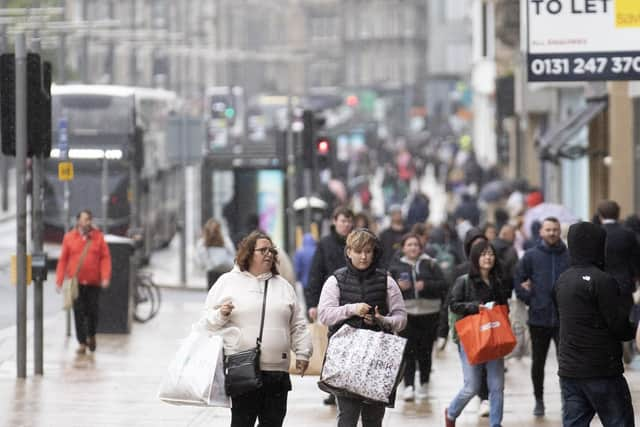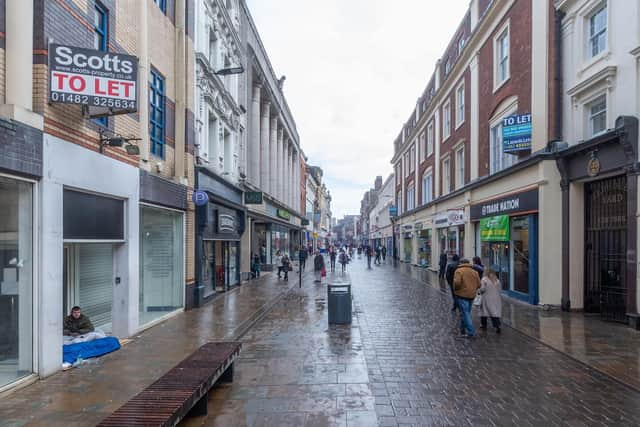Number of empty shops soars with Yorkshire named as one of the worst impacted areas
Figures from the British Retail Consortium (BRC) showed 17 per cent of Yorkshire stores to be currently lying empty, up from 14.9 per cent a year ago. Only Wales, the North East and North West have higher rates of dormant stores.
Nationally, in the first quarter of 2021, the overall vacancy rate increased to 14.1 per cent, from 13.7 per cent in last quarter of 2020.
Advertisement
Hide AdAdvertisement
Hide AdIt was 1.9 percentage points higher than in the same point in 2020 and marks three years of increasing vacancy rates. Shopping centres felt the worst rate of vacancies, having seen an increase of 18.4 per cent.


On the high street, vacancies increased to 14.1 per cent while retail park vacancies increased slightly to 10.6 per cent and remains the location with by far the lowest rate.
Helen Dickinson, chief executive of the British Retail Consortium, said: “After a third national lockdown, it is no surprise that the vacancy rate has continued to soar. The forced closure of thousands of shops during the first quarter of 2021 has exacerbated already difficult conditions for the retail industry.
“We estimate there are 5,000 fewer stores since the start of the pandemic, meaning one in seven shops lie empty. There is significant regional disparity in vacancies, with the North of England showing a greater rise compared with other parts of the country.
Advertisement
Hide AdAdvertisement
Hide Ad“Shopping centres, many of which have been forced to close for a large portion of this pandemic, have fared worse than other retail locations, with over 12 per cent of units lying empty for a year or more.


“With full business rates relief and the moratorium on aggressive debt enforcement ending in England this summer, many stores may never reopen.
“The Government must ensure the ongoing business rates review leads to reform of the broken system and permanently reduces the cost burden which is leading to unnecessary store closures and job losses.”
Lucy Stainton, director at Local Data Company, said: “Shopping centres have been particularly exposed to the effects of the pandemic, principally having a lower proportion of “essential” retailing as well as being exposed to categories which are in decline such as fashion, department stores and casual dining.”